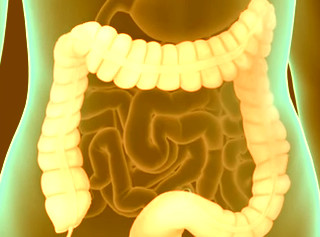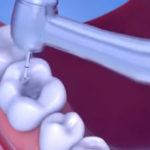When we talk of a swollen colon, it refers to a collection of chronic inflammatory conditions affecting the intestines. This condition is said to be caused by the own immune system of the body. The immune system is designed to provide a first line of defense from things like bacteria or foreign invaders. When the immune system does that, it helps protect the body from any possible harm that could be caused by the foreign invaders or pathogens. Sometimes, the immune systems acts differently, instead of attacking the foreign matter, it invades itself. A person with a condition like inflammatory bowel disease (IBD) may have swelling of the intestinal tissue.
Common examples of inflammatory bowel disease (IBD) are such as Crohn’s disease and ulcerative colitis. These conditions are associated with autoimmune reaction. People with these conditions have bouts of abdominal pain coupled with diarrhea.
Causes of Swollen Colon
Different things can cause a swollen colon and doctors will do multiple tests to help in pinpointing the exact cause of the swelling of the colon. Some potential causes include blood flow problems, infections, and immune system problems. Direct contact with toxins or chemicals may also cause the swelling, for example during an enema.
When talking of enema, it is a procedure that allows a liquid or gas to be injected into an individual’s rectum to expel the contents or to bring in drugs or at times to permit X-ray imaging for a clear view.
Swollen Descending Colon (Left Side Colon)
If you have a swollen colon, especially on the left side, which is also referred to as the descending colon, it may be due to a number of things. An infection such as bacteria, parasite, or virus may be the culprit. Infections may bring about bloody diarrhea and dehydration. Immediate treatment is require to prevent excessive dehydration.
Blood flow problems may also be associated with left side colon swelling. A disorder known as ischemic colic in which there is narrowing of the arteries supplying blood to the colon may lead to decreased blood flow. The intestinal tract needs proper blood supply into to function normally and ensure the tissues remain alive and healthy. Certain conditions can bring about blood flow problems in the colon. For example, a condition referred to as volvulus which manifests in the form of a twisted colon make the blood vessels to be strangulated. Another condition is incarcerated hernia which causes outpouching of the tissues of intestines leading to impaired blood flow.
Inflammatory bowel diseases such as Crohn’s disease and ulcerative colitis may also be implicated in left side colon swelling. Presence of toxins or chemicals may irritate the colon causing it to become swollen.
Right Side Swollen Colon
When there is swelling of the ascending colon; it may be due to trauma, infections, inflammation, vascular issues, growth or tumors, and obstructions.
Inflammatory bowel disease is caused by an unregulated or dysregulated immune system response in hosting intestinal microflora. Crohn’s disease affects any part of the digestive tract or gastrointestinal tract from the mouth part to the anal part. Ulcerative colitis is limited to the colon and rectum. It causes ulcers in the innermost lining of the colon. Medical experts are still researching to find out what precisely causes these conditions. Some recent studies have indicated that these inflammatory conditions may be linked to a certain protein referred to as Bcl-3.
According to Dr. Nadine Hövelmeyer who is the head of the research team at the Mainz-based Institute for Molecular Medicine, the levels of a protein Bcl-3 seem to be increased or elevated within the intestinal tract of patients who have colitis. Nadine also says that the protein is indeed a trigger of colitis. The Bcl-3 protein is said to play a role in the formation of different cancerous diseases.
The Bcl-3 protein tends to suppress the activity and actions of Tregs or regulatory T-cells. These cells are responsible in the prevention of over-reaction of an individual’s immune system. When the Tregs are suppressed, it would mean that the immune system isn’t regulated anymore, something that results in the development of conditions like inflammatory bowel disease or disorders.
Swollen Colon Symptoms
Because there are different causes of swollen colon, the symptoms you experience and how they present are very crucial in helping the doctor to diagnose a patient. Symptoms associated with a swollen colon are diarrhea and abdominal pain. Diarrhea may occur as a watery or soft stool. It is the most prevalent symptom for inflamed or swollen colon.
Your colon helps absorb water and forms stool. When it is swollen, it’s unable to function properly. There may occur an imbalance of the intestinal flora, which is said to be a common cause of inflammation of the intestines as well as a cause for diarrhea. Something to mention here is that if the swollen area of the intestine is within the last section of the colon, it would mean that much of the water in the intestine has already been absorbed. This leads to minimal or no diarrhea.
Another symptom is abdominal pain which manifests in form of cramping pain. The pain occurs in intermittent spasms. Swelling of the colon or bowel inflammation tends to stimulate intestinal wall contractions something that causes pain. The area or location where you feel the pain may also give a clue about which part or side of an individual’s bowel has been affected. There are other symptoms that come with a swollen colon and they include:
- High fever
- Anemia occurs when there is excessive bleeding
- Fatigue
- Weight loss
- Tenesmus referring to the urge for an individual to have a bowel movement
- Bleeding which is often mixed with the stool. This is as a result of damage to the tissue that lines the colon.
- Bloating is common because there is increased stool volume within the colon
- Mucus in stool is commonly seen in patients with ulcerative colitis.
Treatment of Swollen Colon
While some cases of swollen colon are associated with a dysregulated immune system, there are others which may be caused by other things like infections. Treatment is aimed at addressing the symptoms and the causal factors. If an infection is the culprit, a doctor may prescribe antibiotics such as metronidazol or ciprofloxacin and rifaximin. An over-reactive immune response may be countered using immunosuppressant agents such as azathioprine, methotrexate, 6-mercaptopurine, or cyclosporine. Antidiarrhea agents including loperamide, cholestyramine, or diphenoxylate and atropine may be administered to manage diarrhea.
Surgery may be used to treat ulcerative colitis but it is not effective in treating Crohn’s disease. Diet is very important when managing gastrointestinal disorders. An individual may want to take foods like flaxseeds, steamed vegetables, lemon juice, and probiotics to help with cleansing the colon of impurities and creating a balance of the intestinal flora.


